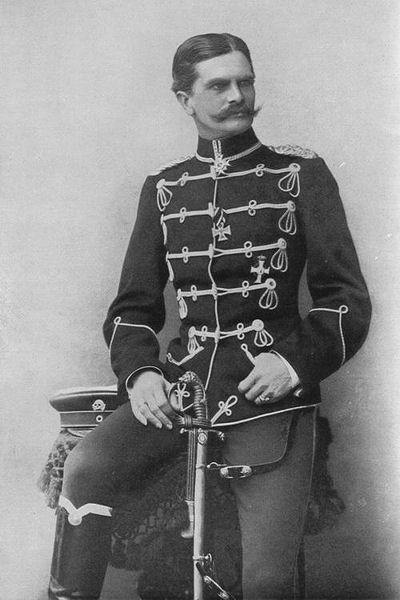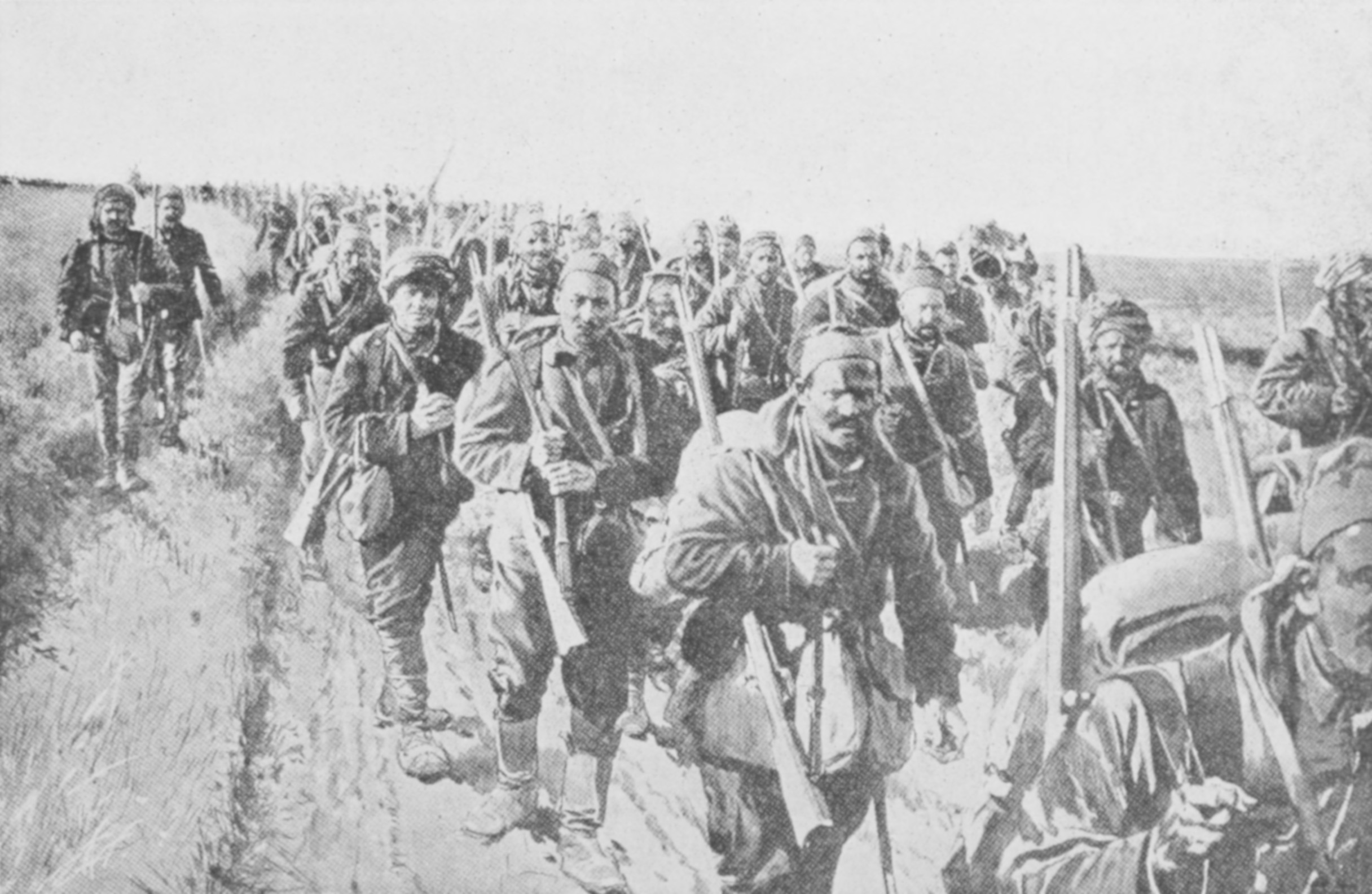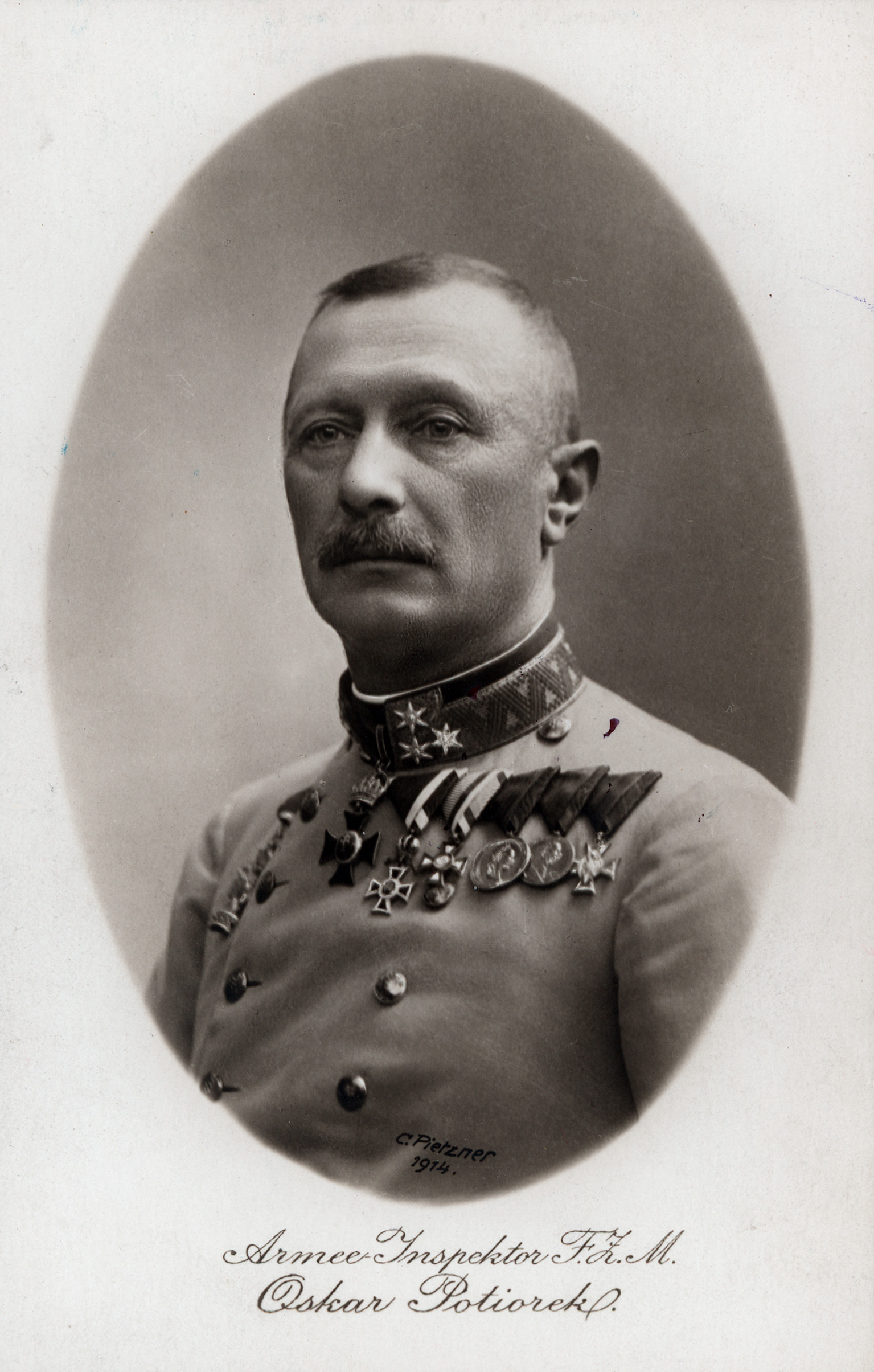|
ŇĹivko Topalovińá
ŇĹivko Topalovińá (21 March 1886 – 11 February 1972) was a Serbian and Yugoslav socialist politician. Topalovińá became a leading figure in the Socialist Party of Yugoslavia, founded in 1921.Banac, Ivo. The National Question in Yugoslavia: Origins, History, Politics'. Ithaca: Cornell University Press, 1984. pp. 198-199. During World War II he became a prominent member of DraŇĺa Mihailovińá's Chetniks. Early life Topalovińá graduated from the UŇĺice high school in 1904. During his time in UŇĺice, he met Dimitrije Tucovińá, Radovan Dragovińá and DragiŇ°a Lapńćevińá, the founders of socialism in Serbia and started on the path of a life-long socialist. By the age of 18, he became a union instructor and secretary of the Alliance of Textile Workers of Serbia. He leaves for Belgrade to successfully pursue his studies in law, obtaining a PhD in criminal law. Between 1910 and 1912 he was in Paris and Berlin, studying further. His studies were cut short by the outbreak of the Firs ... [...More Info...] [...Related Items...] OR: [Wikipedia] [Google] [Baidu] |
First Balkan War
The First Balkan War lasted from October 1912 to May 1913 and involved actions of the Balkan League (the Kingdoms of Kingdom of Bulgaria, Bulgaria, Kingdom of Serbia, Serbia, Kingdom of Greece, Greece and Kingdom of Montenegro, Montenegro) against the Ottoman Empire. The Balkan states' combined armies overcame the initially numerically inferior (significantly superior by the end of the conflict) and strategically disadvantaged Ottoman armies, achieving rapid success. The war was a comprehensive and unmitigated disaster for the Ottomans, who lost 83% of their European territories and 69% of their European population.''Balkan SavaŇülarńĪ ve Balkan SavaŇülarńĪ'nda Bulgaristan'' S√ľleyman Uslu As a result of the war, the League captured and partitioned al ... [...More Info...] [...Related Items...] OR: [Wikipedia] [Google] [Baidu] |
Prisoner Of War
A prisoner of war (POW) is a person held captive by a belligerent power during or immediately after an armed conflict. The earliest recorded usage of the phrase "prisoner of war" dates back to 1610. Belligerents hold prisoners of war for a range of legitimate and illegitimate reasons. These may include isolating them from enemy combatants still in the field (releasing and Repatriation, repatriating them in an orderly manner after hostilities), demonstrating military victory, punishment, prosecution of war crimes, labour exploitation, recruiting or even conscripting them as combatants, extracting collecting military and political intelligence, and political or religious indoctrination. Ancient times For much of history, prisoners of war would often be slaughtered or enslaved. Early Roman gladiators could be prisoners of war, categorised according to their ethnic roots as Samnites, Thracians, and Gauls (''Galli''). Homer's ''Iliad'' describes Trojan and Greek soldiers offeri ... [...More Info...] [...Related Items...] OR: [Wikipedia] [Google] [Baidu] |
Corfu
Corfu ( , ) or Kerkyra (, ) is a Greece, Greek island in the Ionian Sea, of the Ionian Islands; including its Greek islands, small satellite islands, it forms the margin of Greece's northwestern frontier. The island is part of the Corfu (regional unit), Corfu regional unit, and is administered by three municipalities with the islands of Othonoi, Ereikoussa, and Mathraki. The principal city of the island (pop. 32,095) is also named Corfu (city), Corfu. Corfu is home to the Ionian University. The island is bound up with the history of Greece from the beginnings of Greek mythology, and is marked by numerous battles and conquests. Ancient Korkyra (polis), Korkyra took part in the Battle of Sybota which was a catalyst for the Peloponnesian War, and, according to Thucydides, the largest naval battle between Greek city states until that time. Thucydides also reports that Korkyra was one of the three great naval powers of Greece in the fifth century BCE, along with Classical Athens, At ... [...More Info...] [...Related Items...] OR: [Wikipedia] [Google] [Baidu] |
Red Cross Of Serbia
The Red Cross of Serbia () is a humanitarian, non-governmental organisation that provides humanitarian aid, disaster relief and education in Serbia. It is the national affiliate of the International Federation of Red Cross and Red Crescent Societies. It was founded on 6 February 1876 by Vladan ńźorńĎevińá, a prominent Serbian physician and politician. Metropolitan Mihailo, its first president, held the office from its fledgling beginnings in 1876 until 1883. The other presidents include: * Vladislav Vujovińá (1883‚Äď1886) * ńźorńĎe Simińá (1886‚Äď1888) * Milojko LeŇ°janin (1888‚Äď1896) * Jovan MiŇ°kovińá (1896‚Äď1897) * Stevan Zdravkovińá (1897‚Äď1899) * Dragutin Franasovińá (1899‚Äď1914) * Milos Borisavljevic (1914‚Äď1921) Disaster response One of the public authorisations given to the Red Cross of Serbia by the Government of Serbia is preparing, acting and educating people for response to disasters, armed conflicts and other emergency situations on the territory of Serbia. ... [...More Info...] [...Related Items...] OR: [Wikipedia] [Google] [Baidu] |
Austria-Hungary
Austria-Hungary, also referred to as the Austro-Hungarian Empire, the Dual Monarchy or the Habsburg Monarchy, was a multi-national constitutional monarchy in Central Europe#Before World War I, Central Europe between 1867 and 1918. A military and diplomatic alliance, it consisted of two sovereign states with a single monarch who was titled both the Emperor of Austria and the King of Hungary. Austria-Hungary constituted the last phase in the constitutional evolution of the Habsburg monarchy: it was formed with the Austro-Hungarian Compromise of 1867 in the aftermath of the Austro-Prussian War, following wars of independence by Hungary in opposition to Habsburg rule. It was dissolved shortly after Dissolution of Austria-Hungary#Dissolution, Hungary terminated the union with Austria in 1918 at the end of World War 1. One of Europe's major powers, Austria-Hungary was geographically the second-largest country in Europe (after Russian Empire, Russia) and the third-most populous (afte ... [...More Info...] [...Related Items...] OR: [Wikipedia] [Google] [Baidu] |
Aschach An Der Donau
Aschach an der Donau is a municipality in the district Eferding in the Austrian state of Upper Austria. Geography Aschach lies in the Danube Valley, on the edge of the Eferding Basin in the Hausruckviertel. About 2 percent of the area is forested. Subdivisions are: Aschach an der Donau (center), Ruprechting, and Sommerberg. Coat of arms ''Silver and red, covered by two natural colored, twisted grapevines with a blue grape to the left, a green grape to the right and a green leaf in each half.'' The colors of the banner are red, white and green. The motif indicates due to climatic advantages in the early Middle Ages operated winery, which was mentioned in the ''Stiftbrief'' for Kremsm√ľnster in the year 777 and was maintained in the area around Aschach in some vineyards until after 1870. White-red are the colors of the banner of arms of the Counts of Schauberg, who until 1559 held government and a major toll in Aschach. History First mentioned in the year 777 at the ... [...More Info...] [...Related Items...] OR: [Wikipedia] [Google] [Baidu] |
August Von Mackensen
Anton Ludwig Friedrich August Mackensen (ennobled as von Mackensen in 1899; 6 December 1849 ‚Äď 8 November 1945), was a German field marshal. He commanded Army Group Mackensen during World War I (1914‚Äď1918) and became one of the German Empire's most prominent and competent military leaders. After the armistice of 11 November 1918, the victorious Allies interned Mackensen in Serbia for a year. In 1920, he retired from the army. In 1933 Hermann G√∂ring made him a Prussian state councillor. During the Nazi era (1933‚Äď1945), Mackensen remained a committed monarchist and sometimes appeared at official functions in his World War I uniform. Senior Nazi Party members suspected him of disloyalty, but nothing was proven against him. Early life and career Mackensen was born in Haus Leipnitz, near the village of Dahlenberg (today part of Trossin) in the Prussian Province of Saxony, to Ludwig and Marie Louise Mackensen. His father, an administrator of agricultural enterprises, sen ... [...More Info...] [...Related Items...] OR: [Wikipedia] [Google] [Baidu] |
Battle Of Kolubara
The Battle of Kolubara ( sr-Cyrl, –ö–ĺ–Ľ—É–Ī–į—Ä—Ā–ļ–į –Ī–ł—ā–ļ–į, ) was fought between Austria-Hungary and Serbia in November and December 1914, during the Serbian Campaign of 1914. It commenced on 16 November, when the Austro-Hungarians under the command of Oskar Potiorek reached the Kolubara river during their third invasion of Serbia that year, having captured the strategic town of Valjevo and forced the Serbian army to undertake a series of retreats. The Serbs withdrew from Belgrade on 29‚Äď30 November, and the city soon fell under Austro-Hungarian control. On 2 December, the Serbian army launched a surprise counterattack all along the front. Valjevo and UŇĺice were retaken by the Serbs on 8 December. The Austro-Hungarians retreated to Belgrade, which 5th Army commander Liborius Ritter von Frank deemed untenable. The Austro-Hungarians abandoned the city between 14 and 15 December and retreated into Austria-Hungary, allowing the Serbs to retake their capital the followi ... [...More Info...] [...Related Items...] OR: [Wikipedia] [Google] [Baidu] |
Battle Of Cer
The Battle of Cer was a military campaign fought between Austria-Hungary and Serbia in August 1914, starting three weeks into the Serbian Campaign of 1914, the initial military action of the First World War. It took place around Cer Mountain and several surrounding villages, as well as the town of ҆abac. The battle, part of the first Austro-Hungarian invasion of Serbia, began on the night of 15 August when elements of the Serbian 1st Combined Division encountered Austro-Hungarian outposts that had been established on the slopes of Cer Mountain earlier in the invasion. The clashes that followed escalated into a battle for control over several towns and villages near the mountain, especially ҆abac. On 19 August, the morale of the Austro-Hungarians collapsed and thousands of soldiers retreated into Austria-Hungary with many of them drowning in the Drina River as they fled in panic. On 24 August the Serbs re-entered ҆abac, marking the end of the battle. Serbian casualties afte ... [...More Info...] [...Related Items...] OR: [Wikipedia] [Google] [Baidu] |
World War I
World War I or the First World War (28 July 1914 ‚Äď 11 November 1918), also known as the Great War, was a World war, global conflict between two coalitions: the Allies of World War I, Allies (or Entente) and the Central Powers. Fighting took place mainly in European theatre of World War I, Europe and the Middle Eastern theatre of World War I, Middle East, as well as in parts of African theatre of World War I, Africa and the Asian and Pacific theatre of World War I, Asia-Pacific, and in Europe was characterised by trench warfare; the widespread use of Artillery of World War I, artillery, machine guns, and Chemical weapons in World War I, chemical weapons (gas); and the introductions of Tanks in World War I, tanks and Aviation in World War I, aircraft. World War I was one of the List of wars by death toll, deadliest conflicts in history, resulting in an estimated World War I casualties, 10 million military dead and more than 20 million wounded, plus some 10 million civilian de ... [...More Info...] [...Related Items...] OR: [Wikipedia] [Google] [Baidu] |
Second Balkan War
The Second Balkan War was a conflict that broke out when Kingdom of Bulgaria, Bulgaria, dissatisfied with its share of the spoils of the First Balkan War, attacked its former allies, Kingdom of Serbia, Serbia and Kingdom of Greece, Greece, on 16 (Old Style, O.S.) / 29 (N.S.) June 1913. Serbian and Greek armies repulsed the Bulgarian offensive and counterattacked, entering Bulgaria. With Bulgaria also having previously engaged in territorial disputes with Kingdom of Romania, Romania and the bulk of Bulgarian forces engaged in the south, the prospect of an easy victory incited Romanian intervention against Bulgaria. The Ottoman Empire also took advantage of the situation to regain some lost territories from the previous war. When Romanian troops approached the capital Sofia, Bulgaria asked for an armistice, resulting in the Treaty of Bucharest (1913), Treaty of Bucharest, in which Bulgaria had to cede portions of its First Balkan War gains to Serbia, Greece and Romania. In the Trea ... [...More Info...] [...Related Items...] OR: [Wikipedia] [Google] [Baidu] |






